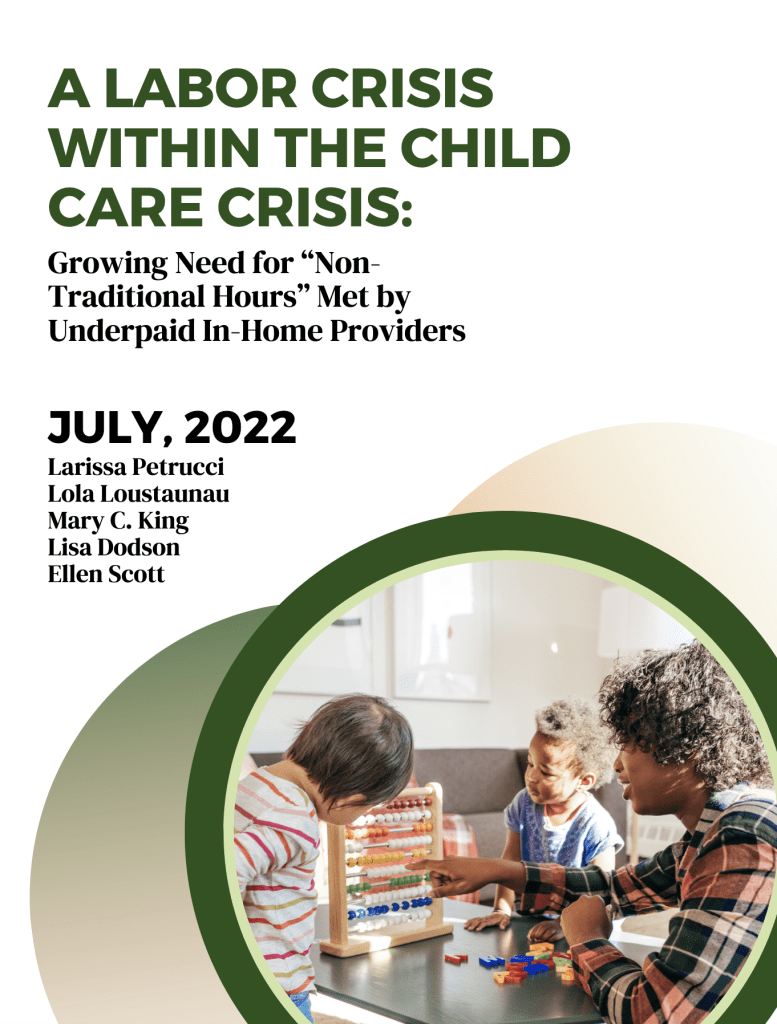The Growing Need for “Non-Traditional Hours” Met by Underpaid In-Home Providers
Larissa Petrucci
Lola Loustaunau
Mary C. King
Lisa Dodson
Ellen Scott
LERC is proud to release a new report, titled A Labor Crises within the Childcare Crisis: The Growing Need for “Non-Traditional Hours” Met by Underpaid In-Home Providers
In this interview-based report, a multi-ethnic group of over thirty home-based child care providers, licensed to care for up to 16 children at a time, describe the long, irregular, badly paid and too often unpaid hours they work to care for the children of Oregon’s working class families. They and their families pay the price for both poor wages and working conditions in the rest of the economy, and for our stingy public child care programs. Families can’t afford the true cost of care and our severely underfunded public child care programs are too small and weak to make up the difference. Labor law has failed to restrain employers, who increasingly demand that parents work without a regular schedule, always “on call” to come in at short notice or to stay late. The promise of the federal Build Back Better bill to bring U.S. early childhood education and care up to the level of other wealthy countries has faded. Policy action at the federal, state and local level is urgently needed to make a significant public investment in early childhood education and care, raise labor standards in child care, reverse the steady loss of skilled, experienced and dedicated child care providers and workers and give our children the start in life that they deserve.
Click here to read the report’s Executive Summary, and here for the whole report.



